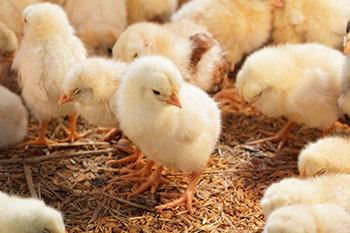Chick Days 2025

Do Backyard Layers Make Sense For Me?
If you are on the fence about staring your backyard poultry flock, a few simple questions can help to decide if there is a benefit to layers and if they are the right choice for your family!
Backyard Poultry has been growing exponentially over the last few years.
Many people see this as an easy way to have a more sustainable, cost-effective, and personal connection to their food sources.
One of the main reasons people raise chickens is to collect fresh eggs.
But how do eggs from backyard chickens compare to those bought from the supermarket?
Collecting eggs from your flock:
Before we dive into the benefits of collecting backyard eggs, it’s important to understand the basic process of egg collection.
1. Setting Up a Chicken Coop
The first step to collecting eggs from a backyard flock is setting up a safe and secure chicken coop. The coop should be predator-proof, well-ventilated, and large enough to comfortably house the number of hens you plan to raise. Inside the coop, you will need nesting boxes where hens can lay their eggs.
2. Feeding and Caring for Hens
Healthy hens lay eggs consistently. Ensuring your chickens have a balanced diet, including commercial feed, fresh water, and occasional treats like kitchen scraps, is crucial for maintaining their health. You’ll also need to provide appropriate bedding for the chickens, such as straw or wood shavings, to keep their living environment clean.
3. Collecting the Eggs
Eggs are typically laid in the early morning hours. Once your hens begin laying, it’s important to check the nesting boxes daily, usually in the morning or at least once a day, to collect the eggs before they can become dirty or damaged. Gently collect the eggs and store them in a cool, dry place, preferably in an egg carton. Depending on the breed and age of the hens, you may collect anywhere from 1 to 6 eggs per day from a flock of 3-6 hens.
4. Ensuring Cleanliness and Freshness
After collecting the eggs, you may need to clean them if they are soiled. However, it’s usually best to leave the natural protective coating (called the bloom) intact, which helps prevent bacteria from entering through the egg shell. Eggs should be stored in the refrigerator, and backyard eggs can last up to 3-4 weeks when properly stored, though they are often freshest when used within the first two weeks.
The Benefits of Collecting Eggs from a Backyard Flock
1. Better Freshness
One of the main advantages of collecting eggs from your own chickens is freshness. Eggs from backyard hens are often collected within a few hours of being laid, compared to store-bought eggs, which could be weeks old by the time they reach the grocery shelf. Fresh eggs have firmer whites and more vibrant yolks, which not only makes them taste better but also improves their nutritional quality.
2. Superior Taste and Quality
Many people who raise their own chickens for eggs report that they taste much better than store-bought eggs. This can be attributed to the fact that hens that are allowed to roam freely and are fed a varied diet produce richer-tasting eggs. The color of the yolk tends to be a deeper golden yellow, and the whites have a firmer consistency. This improved taste is one of the key selling points for backyard egg collectors.
3. Healthier Eggs
Backyard chickens are often raised with more natural diets, including access to fresh grass, bugs, and scraps, which contributes to healthier eggs. Some studies show that eggs from free-range hens are higher in omega-3 fatty acids and vitamins like Vitamin D. Additionally, backyard eggs have less cholesterol and fewer hormones and antibiotics compared to commercially produced eggs, which are often given growth hormones and treated with antibiotics in large-scale industrial farms.
4. Sustainability and Environmental Impact
By raising your own chickens for eggs, you reduce your reliance on factory farming, which is a major contributor to environmental degradation. Commercial egg production is resource-intensive, requiring large amounts of water, feed, and space to house thousands of hens. In contrast, backyard flocks tend to have a smaller environmental footprint, as chickens can be fed kitchen scraps, eat insects, and roam in your yard. Additionally, chickens can help recycle waste products and produce manure that can be composted for use in gardening.
5. Cost Savings
Although there is an initial investment in purchasing chickens, a coop, and other supplies, raising backyard hens for eggs can save you money in the long term. Over the years, as your flock matures and becomes more productive, the cost per egg can be much lower than purchasing commercial eggs. Even with the costs of feed, bedding, and occasional vet visits, many people find that the expense of keeping a small flock of hens is offset by the savings on eggs.
6. Educational and Emotional Benefits
Raising chickens offers valuable learning experiences, especially for children. Kids can observe the life cycle of a hen, learn about animal husbandry, and understand where their food comes from. Additionally, many chicken keepers form a strong bond with their flock, finding joy in the animals’ personalities and the act of providing for them. This connection to your food and animals can lead to a greater appreciation for the hard work involved in food production.
Both backyard eggs and commercially produced eggs have their advantages and drawbacks. Collecting eggs from a backyard flock offers benefits such as superior taste, freshness, healthier eggs, sustainability, and cost savings in the long term. However, it does require a time commitment, effort in caring for the chickens, and an initial investment in equipment.
For those who are looking to take control of their food supply, enjoy fresher and tastier eggs, and live more sustainably, raising a small flock of hens can be a rewarding and enjoyable experience.